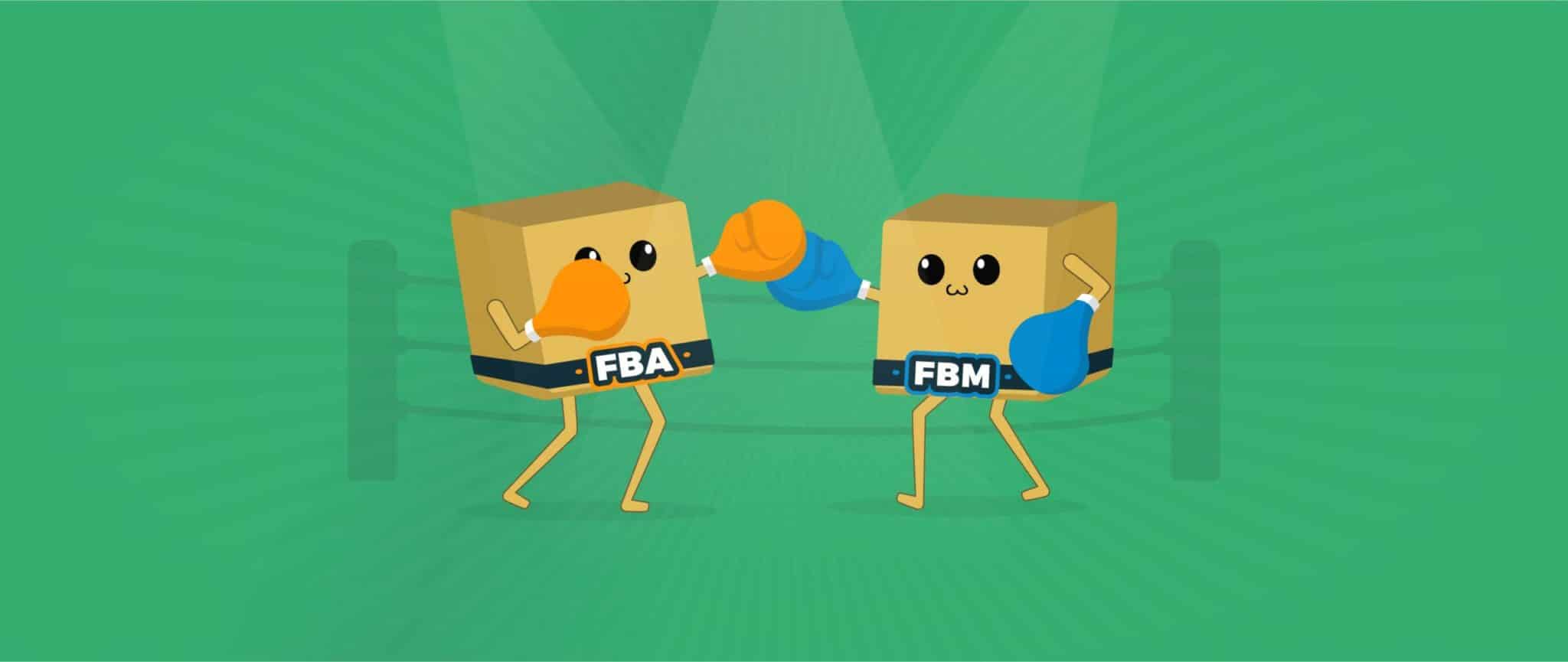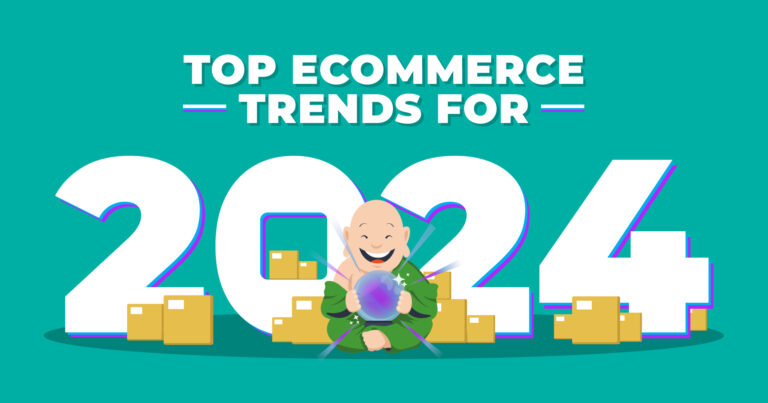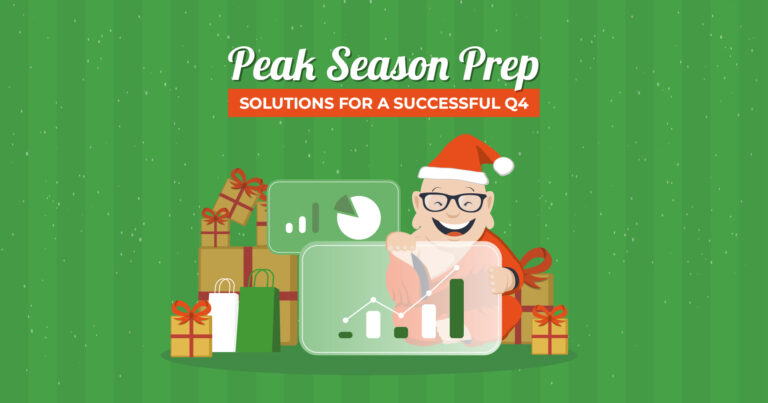FBA vs. FBM: How to Choose
If you’re thinking of selling products online, Amazon.com is a solid place to start. As the 13th largest company in the world, Amazon averages 200 million unique visitors per month, which means there’s plenty of opportunity to put your eCommerce business on the map. Of course, it’s not just about what you sell — it’s also about how you’re getting products to your customers.
As an Amazon seller, you have two main choices when it comes to order fulfillment: Fulfilled by Amazon (FBA) or Fulfilled by Merchant (FBM). Each method comes with its advantages and disadvantages, which is exactly what we’ll be exploring in this article! Let’s get started.
FBA (Fulfilled by Amazon)
Fulfilled by Amazon (aka FBA) is Amazon’s answer to fulfillment. The premise is simple: You’ve got the goods, and they’ve got everything else… or so they say. With FBA, your main responsibility is to comply with their guidelines. Sounds simple enough, right? Not quite — let’s take a closer look.
Pros of FBA
Hands-Off Fulfillment
Not every seller has the bandwidth to tackle the trickier aspects of fulfillment, like customer service, returns, and shipping. Delegating these key duties can be especially beneficial for eCommerce beginners, and Amazon doesn’t (usually) disappoint. While no company is perfect, Amazon is a largely well-oiled machine, which means you can sleep easy knowing your online business is pretty much safe in their hands.
Automatic Eligibility for Amazon Prime
Who doesn’t love fast and free shipping? Amazon Prime comes with numerous benefits, and Prime’s signature next-day (previously 2-day) shipping has raised the bar for online retailers far and wide. By opting for FBA, your store becomes automatically eligible for Amazon Prime, virtually eliminating anything but the best shipping options for your customers.
Aside from enjoying speedy deliveries, shoppers are more inclined to view Prime products in a favorable light, which can translate to higher conversion rates overall. Ka-ching!
Buy Box Priority
The Buy Box refers to the white box on the right side of a product page where you can click the “Add to Cart” and “Buy Now” buttons.
When a customer clicks on either button, they are purchasing from one seller and one seller only. Merchants who list the same product are essentially competing to win the Buy Box, which is a pretty big deal as it accounts for around 82% of Amazon’s sales.
While there are a few different factors that go into securing the Buy Box — such as product price and customer feedback — your fulfillment strategy is a top consideration for the algorithm. By choosing FBA, your store is given priority over other sellers, as Amazon knows they can count on their own quick and efficient service to get orders out with as few issues as possible.
Cons of FBA
Prepwork Galore
Complying with Amazon’s guidelines includes properly prepping and labeling your inventory before it’s shipped to their warehouses. For smaller businesses, this may be no biggie. However, if you’re strapped for time or cycle through a lot of inventory, FBA prep can become a real nightmare — just check out Amazon’s official Packaging and Prep Requirements if you don’t believe us!
But, if you’re committed to FBA, there’s a way around this. Some 3PLs offer FBA prep services, which can equal more time in your hands… but less money in your pockets.
Weak Branding
We all want to make a splash, and what better way than with a personable, engaging brand? In an increasingly saturated market, branding matters. And, while FBA scores big on convenience, your branding will be standardized to Amazon’s protocols. When every Amazon package looks the same, it’s much easier for customers to say “I got it from Amazon,” than recall the specific store they purchased from.
FBM (Fulfilled by Merchant)
Amazon Fulfilled by Merchant (aka FBM) is for all the rebels out there — for the ones who like their martinis shaken, not stirred. But, whether you’re drinking a mimosa or a Long Island, FBM invites you to be your own bartender. Are you ready to get mixin’?
Pros of FBM
Hands-On Fulfillment
Are you not entirely comfortable with the notion of handing your business’s livelihood over to Amazon? If you’re not quite ready to send your baby off to college, then being in charge of your own fulfillment strategy may be more your speed.
Of course, as your business expands, it might not be possible to keep it in-house. But even outsourcing to a 3PL means you’ll be choosing a solution that best suits your wants and needs.
SFP (Seller Fulfilled Prime)
While it’s true you won’t have the immediate advantage over FBA sellers, you can still hold your own by qualifying for Seller Fulfilled Prime. SFP allows FBM sellers to ship Prime straight from their own warehouses. There is a catch though, which is — you guessed it — more guidelines and requirements to adhere to. More on that in a bit!
Better Brand Development
If branding was a challenge with FBA, it’s a breeze with FBM. In this case, going rogue gives you full control over how you’d like your brand to be perceived, and the opportunities are endless. From enhancing the unboxing experience to building a dedicated customer base, FBM has the clear marketing edge.
Cons of FBM
Stiff Competition
It’s a dog eat dog world out there, and choosing FBM means you’re the underdog. That’s not at all a bad thing, but it does mean that you’ll be facing more obstacles than your FBA counterparts. This is especially true if you want to keep your status as an SFP seller, which is tricky to qualify for in the first place. For more info on what it takes to be SFP-certified, check out this blog post!
More Responsibility
By choosing FBM, the responsibility of fulfillment falls squarely on your shoulders. Customer support questions, lost packages, and the like will be up to you to fix, all while maintaining a stellar reputation for your online store.
All in all, FBM means a little extra work on your end, but know that you’re not alone. At the end of the day, many sellers prefer the added security of more control (and more breathing room!), but are unable to take on the mammoth task of fulfillment by themselves. That’s why 3PLs are increasingly turning their focus to assisting FBM sellers, specifically by helping them qualify for SFP through top-of-the-line order fulfillment. It’s kind of like having a mini Amazon just to yourself!
While there’s only two fulfillment options with Amazon, there’s plenty to consider. But, regardless of which team you’re on, there’s a strategy that’s right for you and your business. Oh, and if you were wondering about FBM, SFP-friendly 3PLs… we’re on that list! 😉
Questions? Answers. Shoot us a line here.



